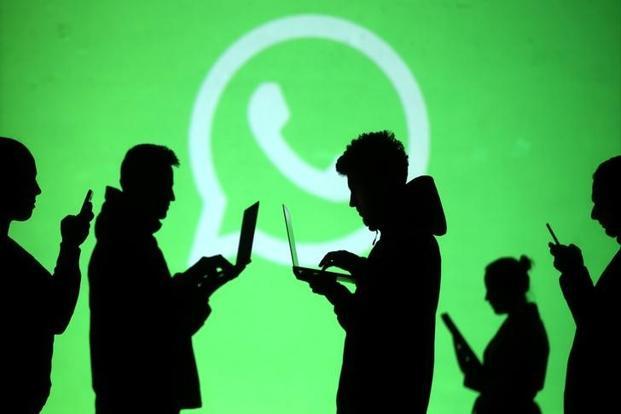The WhatsApp Dilemma Between Privacy and Security
Privacy often seems like a necessary evil. Everyone all over the world seeks privacy, be it in real or virtual life. Even when people don’t have anything to hide, they crave privacy, because it is the right of an individual to be able to decide what and how much they want to expose publicly.
The more you expose about yourself, the more vulnerable you became to threats. A good example is the case of celebrities who love to remain in the limelight but don’t always like it when fallacious rumors are going around about them – such as Tom Cruise and those scientology stories. Rumors and fake news are the worst for celebrities.

The WhatsApp Dilemma Between Privacy and Security
A Vicious Cycle
On the other hand, those who prefer to remain private and don’t share anything about themselves publicly have fewer instances of rumors or fake news. The more you reveal publicly, the hungrier the world becomes.
While privacy is craved by most people because they aren’t comfortable with exposing information about themselves, some people seek privacy because they have a lot to hide, for whatever reason.
For instance, investigative journalists and whistleblowers often take the help anonymizing services to access the internet because they don’t want anyone to know their doings.
This may be for perfectly ethical reasons or for criminal or illegal purposes. Politicians also seek the refuge of encrypted services to hide a lot of information. Indian politicians, in particular, require a lot of secrecy, and one service providing them with it is WhatsApp. This has led some countries such as the UAE to outrights ban VoIP calls on WhatsApp and similar messengers. Other countries are trying to force developers to build encryption backdoors into their apps.
If Dark Web Becomes the Norm
What exactly is dark web? It is that part of the internet that is highly encrypted and anonymous, where no one can trace anyone. There are various services on the surface web that often mimic the features of the dark web. One such service is WhatsApp.
Owned by the socialist Mark Zuckerberg of Facebook, this immensely popular messaging service has 1.5 billion active monthly users and sends 60 million messages every day. The most important reason is the high-level of end-to-end encryption.
Even its administrators cannot decrypt the messages. There aren’t many encrypted messaging services in the world, so WhatsApp has been the go-to option for those who want complete secrecy and privacy.
Even though WhatsApp doesn’t offer anonymity, the encryption makes it impossible for anyone other than the sender and the recipient of the message to know what is being exchanged. This is the reason why WhatsApp has never been hacked and doesn’t require a VPN. It is so secure that even the best of hackers cannot decrypt the contents.
This has been utilized by some politicians of India. Recently, regarding the purchase of 36 Rafale fighter jets, Rahul Gandhi alleged that corruption had compelled the defense minister Nirmala Sitharaman to shy away from disclosing the actual amount spent. The argument could have ended with the fact that Sitharaman was new and had overlooked the section on confidentiality.
But the government retaliated by blaming a joint security agreement in 2008 signed with France by the former UPA government. This agreement had required both parties to protect classified information because it could compromise the security and operations of the military equipment.
What privacy is to individuals, secrecy is to (corrupt) politicians. In the same session, WhatsApp was accused of inciting vigilante violence.
Vehicle of Fake News
What is yet to be decided is how much privacy should be allowed. In various instances, law enforcement requires access to a criminal’s phone because of critical information but is turned down by the manufacturer because it violates privacy.
In the same way, it is difficult to get access to highly encrypted services like WhatsApp because it violates the right to privacy. WhatsApp’s over the top commitment to privacy and encryption has gone down well with the politicians craving secrecy.
While the right to privacy is a fundamental right, it is restricted by other fundamental rights. That is why privacy was added to Article 21 of the Constitution by the Supreme Court in 2017.
WhatsApp is only a glimpse of what could happen if everyone started to use the dark web. Criminals also use cryptocurrencies now to hide illegal transactions and anonymizing services like Tor are used rampantly by black marketers to sell illegal products.
WhatsApp knows all about the unethical use of the service but claims that the technology doesn’t allow it to decrypt the messages. However, they are now rethinking it, because if they cannot comply with the laws in India, it could jeopardize the launch of a new payments app in India.
Despite all these issues, how has WhatsApp survived in India? Because encrypted services such as this appeal to both politicians and common individuals. There has been a lot of debate about the right to privacy in recent times, with the European Union’s GDPR even giving individuals the right to deny or withdraw access to data. The same should be done for anonymized data.
But such a future doesn’t seem likely, as long as people continue to use and utilize the strict encryption of WhatsApp.





